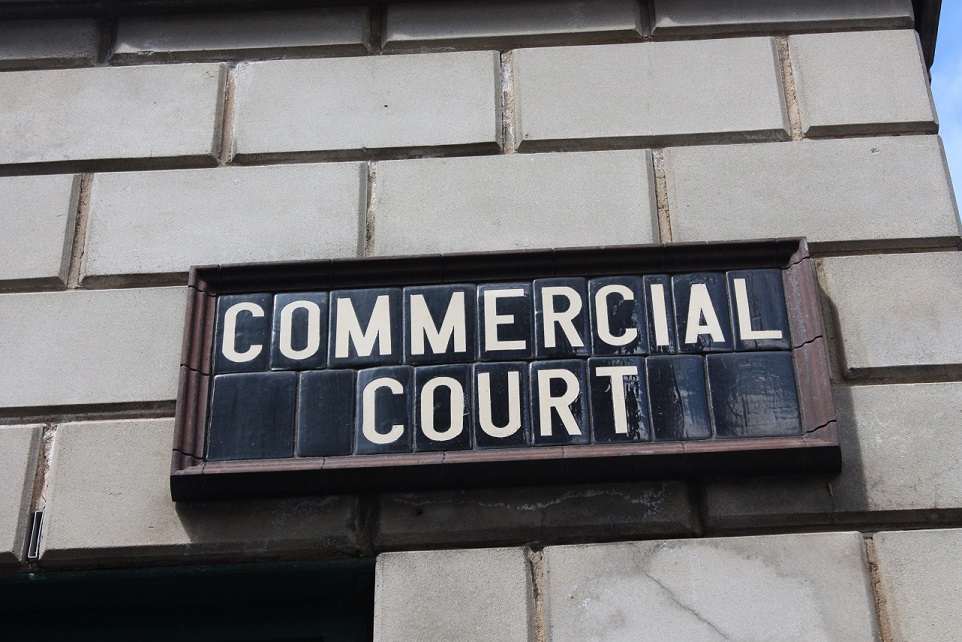– Abul Kalam Azad Sulthan, Advocate, High Court of Judicature at Madras and Madurai Bench of Madras High Court & Partner, Spicy Law Firm.
Introduction:
As we all know, in India, the Judiciary is overloaded with bundles of cases and hence we cannot expect to get a speedy decision for the cases. Due to this indefinite delays, it is very difficult for investors (either domestic or foreign) to get a quick remedy, in case, if is there any untoward issue arises which may affect their investment. To say, in other words, it is very difficult for foreign and domestic investors to protect their investment in India.
White Industries Australia Ltd. Vs. Union of India[1] is a leading case on this subject. In this case, the Court held that inordinate delays happening in India in legal processes are a breach of investment treaty obligation entered into by India.
There have been continuous discussions about the issue faced by foreign and domestic investors for more than 15 years and finally, a new act was enacted by the present Government of India, which is trying to raise India’s image as a suitable destination for investments. The Commercial Courts, Commercial Division and Commercial Appellate Division of High Courts Ordinance, 2015[2] (in short herein after referred as “Ordinance”) was approved by the present Government’s Cabinet and got the Presidential assent on 23rd October 2015. The Ordinance has many features which are in line with the Global/International Standard and the Ordinance was created after in-depth research of the similar acts in the United Kingdom (Commercial Courts Act), the United States of America, Singapore and France.[3]
CONSTITUTION:
According to the Commercial Courts, Commercial Division and Commercial Appellate Division of High Courts Ordinance, 2015, the Commercial Courts has to be constituted by the State Government by notification in the Government Gazette and such establishments should be established after consulting with the High Court concerned.
For regions in which the High Court has bestowed itself with the original jurisdiction that is, in which situations, some particular cases/suits can directly be filed before the High Court, the Chief Justice of such High Court will establish a Commercial Division within such limits of the High Court. Once such Commercial Division/Commercial Court is constituted by the High Court, the Chief Justice of the High Court concerned will have to constitute the Commercial Appellate Division in their limits.
As the aim/mission of the said act is to reduce the inordinate delays, the ordinance ensures that the persons dealing with the clients will have required skills, and
In order to ensure that commercial matters are dealt with by persons with the requisite skill sets, the Ordinance requires that judges of such commercial courts/commercial divisions be well experienced in dealing with Commercial Disputes in India and/or abroad.
JURISDICTION:
According to the ordinance (cleared by Cabinet and received Presidential Assent in 2015), the ordinance bestows jurisdiction to accept and try all suits and applications in regards to a commercial dispute of certain value. If in case, the suits and applications are filed in the High Court concerned which is having original civil jurisdiction, then such cases and applications are tried by the Commercial Division of the High Court which constituted such Commercial Division.
According to Section 2(c)[4] of the The Commercial Courts, Commercial Division and Commercial Appellate Division of High Courts Ordinance, the ‘Commercial Disputes’ is defined very widely and covers almost all commercial transactions including general commercial contracts, shareholder & joint venture agreements, contracts relating to movable and immovable property, intellectual property rights, natural resources etc..
Section 2(c) defines ‘Commercial Dispute’ as follows:
- c) “Commercial Dispute” means a dispute arising out of
- i) Ordinary transactions of merchants, bankers, financiers and traders such as those relating to mercantile documents, including enforcement and interpretation of such documents;
- ii) export or import of merchandise or services;
iii) issues relating to admiralty and maritime law;
- iv) transactions relating to aircraft, aircraft engines, aircraft equipment, and helicopters, including sales, leasing, and financing of the same;
- v) carriage of goods;
- vi) construction and infrastructure contracts, including tenders;
vii) agreements relating to immovable property used exclusively in trade or commerce;
viii) franchising agreements;
- ix) distribution and licensing agreements;
- x) management and consultancy agreements;
- xi) joint venture agreements;
xii) shareholders agreements;
xiii) subscription and investment agreements pertaining to the services industry including outsourcing services and financial services;
xiv) mercantile agency and mercantile usage;
- xv) partnership agreements;
xvi) technology development agreements;
xvii) intellectual property rights relating to registered and unregistered trademarks, copyright, patent, design, domain names, geographical indications and semiconductor integrated circuits;
xviii) agreements for the sale of goods or provision of services;
xix) exploitation of oil and gas reserves or other natural resources including electromagnetic spectrum;
- xx) insurance and reinsurance;
xxi) contracts of the agency relating to any of the above; and
xxii) such other commercial disputes as may be notified by the Central Government.
Section 2(j) of the Ordinance defines ‘Specified Value’.[5] According to this definition, the Specified Value specifies the value of subject matter of the suits which can be tried by the ‘Special Courts’. The value of the subject matter shall not be less than Rupees Ten Million ( Rs.1,00,00,000), and it is about United States Dollar 150000. This value shall be notified by the Central Government in Government Gazette. The Special Courts constituted based on this ordinance shall try matters which will have the value of more than 10 million rupees. The reason for specifying such ‘Specified Value’ is to separate the Commercial Disputes with such value and to get speedy and efficient remedy from the Special Courts for such selected disputes of higher value.
LIMITED RIGHT TO APPEAL/REVISION:
According to Section 13 of the Ordinance[6], any appeal against the decision of the Commercial Courts or Commercial Divisions of the High Courts can be put forward before the Commercial Appellate Division of the High Court concerned only within 60 Days (Sixty Days) from the date of declaration of the decision. Once an appeal is filed against the decision of the Commercial Courts or Commercial Division of the High Courts, the Commercial Appellate Division of the High Court in which the appeal shall lie, will have to take all necessary measures to decide the appeal within 6 months (Six months) from the date of filing of such appeal.
Usually, in general, parties will file a number of interlocutory applications and, such interlocutory orders and interim orders of the courts are subject to appeal and/or revision in the normal courts and hence this practice is leading to inordinate delay in disposing of the principal/main suit. But the Ordinance has barred the parties from using such appeal/revision against the Interlocutory Orders and Interim Orders as tactics to delay the proceedings. The act provides clearly that an appeal can lie only against specific and identified orders of the Commercial Courts and/or Commercial Divisions and no other appeal under any law even appeals under the Letters Patent of a High Court can be preferred against the orders of Commercial Courts and/or Commercial Divisions.
A civil revision application or petition will not be allowed against any interlocutory order and/or interim order of a Commercial Courts and if is there any grievance against such interlocutory orders and/or interim orders can only be filed in appeal against the final decision/decree only.
Section 8 of the Commercial Courts, Commercial Division and Commercial Appellate Division of High Courts Ordinance, 2015 provides that:
Section 8: Bar against revision application or petition against an interlocutory order:-
Notwithstanding anything contained in any other law for the time being in force, no civil revision application or petition shall be entertained against any interlocutory order of a Commercial Court, including an order on the issue of jurisdiction, and any such challenge, subject to the provisions of Section 13, shall be raised only in an appeal from the decree of the Commercial Court.
FRESH PROCEDURE FOR HEARING SUITS:
The CPC (Code of Civil Procedure, 1908) was amended by The Commercial Courts, Commercial Division and Commercial Appellate Division of High Courts Ordinance, 2015 to change the prevailing litigation processes[7] and to regulate the processes followed, so that the disputes will be resolved speedily and efficiently. The Ordinance totally altered the procedure followed earlier and enabled the Commercial Courts to dispose of the suits quickly and efficiently.
The international practices like conducting the case management hearing[8] are also introduced in India due to the enactment of the Commercial Courts Ordinance. The Ordinance also specifies indicative timelines from the date of first case management hearing[9] to completion of the trial. The prescribed timeline from the date of first case management hearing to completion of the trial is 6 months (Six Months). Such prescription of indicative timelines is to bring efficiency and faster resolution of disputes.
The amendments to the CPC are a welcome change. However, the government may need to provide clarifications on various practical difficulties which may arise in its application to ongoing proceedings. Further, based on section 16(1) of the Ordinance[10], arguments may be raised to apply such amended provisions to ongoing suits before various courts till such time the Commercial Courts/ Commercial Divisions are constituted and the suits are transferred.
Strict Timelines:
The CPC was amended by the Ordinance[11] and these amendments are to expedite the proceedings and to get efficient and timely outcomes. Usually, the litigants will purposely delay or fail to file pleadings in pending suits within the prescribed time period and later such litigants go to court with an application to condone the delay. Such practices will unnecessarily delay the proceedings, waste the time of courts and may cause the miscarriage of justice. To avoid such unscrupulous practices, the Ordinance prescribes that if litigant, that is the defendant fails to file the written statement within 120 days (One hundred and twenty days) from the date of serving of the summons, then such defendant will abnegate (renounce) his right to file a written statement and even if someone files written statement after the prescribed time period, the Court is not bound to take such delayed submission of written statement on record.
The Ordinance and the amendments in CPC also specify/prescribe indicative timelines/measures for other situations during the course of a proceeding to ensure speedy and efficient disposal of cases.
According to the amendments, the arguments must be closed within 6 months (Six months) from the date of first case management hearing. In any suits filed in Commercial Courts or Commercial Divisions, written arguments have to be filed at least 4 weeks (Four weeks) before the oral hearing. If any written arguments have to be filed later than oral hearing, such written arguments have to be filed within one week.
In any suit in Commercial Courts or Commercial Divisions, the judgment has to be pronounced within 90 days (Ninety days) from the date of conclusion of arguments.
In any suit in commercial courts or commercial divisions, the recording of evidence has to be done on day to day basis. Any appeal filed against the decision of Commercial Courts has to be filed in Commercial Appellate Division of the High Court concerned and such appeals have to be disposed within 6 months (Six months) period.[12]
After the amendments came into force, seeking adjournments by parties on account of advocate not present in the Court are not permitted.
If there is any grievance against the decision of a commercial court, an appeal to the Commercial Appellate Division has to be made within a period of 60 days from the date of the disposal of case and the commercial appellate division shall endeavor to dispose of such appeal within 6 months from the date of filing of such appeal.
If a plaintiff wants to add additional documents, then he/she has to file an application for adducing the additional documents within 30 days from the date of filing of the suit.
Any application requesting permission to file interrogatories has to be decided within 7 (Seven) days from the date on which it is filed. [13]
Answers to interrogatories have to be filed by the party in an affidavit within 10 (ten) days, and such period of 10 days can be extended by the concerned court. Both the parties (Plaintiff, Defendant) and any other party involved in the suit must inspect all the disclosed documents within 30 days (thirty days) from the date of filing of written statement. If any party has filed an application seeking direction to inspect the documents, such applications seeking directions has to be disposed of within 30 days (thirty days) from the date of filing of the application.
If the court has ordered and issued a direction to allow inspection of documents, such inspection of documents has to be completed within 5 days (five days) from the date of the order of allowing such inspection.
Both the parties have to submit their admission statements or denial statements of all disclosed documents within 15 days of completion of the inspection of disclosed documents. The Court has discretionary powers to change the time limit for submission of admission/denial statements if it deems fit.
If a party is served with a notice to produce any document, the party may be given 15 days time to submit such relevant documents.
The first case management hearing has to be held within (4 weeks) four weeks from the submission of admission/denial of documents by all parties to the suit. Arguments have to be concluded within 6 (Six) months from the date of the first case management hearing.
Written arguments under distinct heads are to be submitted by the parties within 4 (four) weeks of the commencement of oral arguments. Thereafter, the court may allow revised written arguments to be filed within one week after the conclusion of oral arguments.
The court must declare judgment within 90 (ninety) days of the conclusion of arguments.[14]
Frivolous applications and burden of costs:
In Indian Judicial system, the major contributors for the inordinate delay in judicial proceedings are surprising, the litigants themselves. More often the litigants practice unscrupulous tactics to delay and misdirect the due process of law by filing false and vexatious counter claims, meritless appeals and frivolous applications. The parties resort to such unscrupulous behaviors as usually, the courts will not impose heavy fines or burden of costs on parties filing such meritless applications. If the fine or imposed burden of cost is higher, it will act as a deterrent to such litigants resorting to tactics to delay.
The ordinance has taken important measures to correct this and incorporated a cost to follow event regime. The Ordinance has incorporated various major provisions for the court to consider during the award of costs. One of the main parameters is an unreasonable refusal of a reasonable offer made by a party to settle the issue. It is to promote the settlement of disputes/suits and to encourage a reasonable approach by both the parties towards such discussions.[15]
The Ordinance also provides that, in case, if the successful party has made frivolous and vexatious claims and if it comes out/proved before the court, even the unsuccessful party will be awarded costs. There is an illustration regarding this in the Ordinance.
Hence we can understand that the intention of the framers of the ordinance is to ensure that the parties (litigants) approach court without any frivolous motives and the courts have the discretionary and statutory powers to impose adequate costs on litigants who are erring. It is important to note that the legislature has also taken into account the fact that Courts had in the past imposed a nominal cost on litigants which were not commensurate with actual costs. However, the Ordinance has specifically mentioned that “legal fees” and “fees and expenses of witnesses” are to be taken into consideration while awarding costs to the successful party.
Case Management:
In Rameshwari Devi Vs. Nirmala Devi, the Supreme Court held that during the time of filing of a suit, the trial court should finalize a timeline for all filings and pleadings and all parties should adhere to these timelines. It is an international practice to have a hearing for case management and it is an important part of the legal system. It is the case in different jurisdictions including United States of America, Australia, France, United Kingdom etc.[16] The Supreme Court opined based on this best practice of case management.
In Section 7 of the Schedule inserted in Order XV-A in the CPC provides for the concept of Case Management in which the Court shall mandatorily hold a meeting of the parties and in such meeting, the Court will make decision on a timeline for all important stages in the proceedings like recording of evidence, filing of written arguments, commencement and conclusion of oral arguments. The court is further authorized to pass a wide variety of orders at such case management hearing to ensure smooth and effective disposal of the suit.
Summary Judgment:
In most of the occasions, some disputes are remaining in the courts without any progress as the entire process/procedures envisaged in the Civil Procedure Code[17] has to be followed by the Court and all stages need to be completed before a judgment can be passed. Courts are duty bound to follow the principles of natural justice and afford to the defendants all kinds of statutory remedies available. The process envisaged by the Ordinance for a summary judgment is similar to the existing procedure of Summary Suits in the Civil Procedure Code. The principal difference being the ability of parties to request for summary judgments in all commercial disputes of Specified Value.
CONCLUSION:
The promulgation of the Commercial Courts, Commercial Division and Commercial Appellate Division of High Courts Ordinance, 2015 is to take necessary measures to make India a suitable destination to attract foreign investment. [18]
The Government of India has also amended the Code of Civil Procedure, 1908 to effectively implement the Commercial Courts Act. The Commercial Act is a good piece of legislation which will definitely help to reduce delays to find the solution for Commercial Disputes. With regard to the High Courts exercising the original jurisdiction which hears commercial matters, have constituted a Commercial Division and Commercial Appellate Division. It shall increase the speed of disposal of Commercial Disputes, and also improve the image of India as a suitable destination for investment. The opening of such commercial courts is definitely a stepping-stone to a land mark reformation of the civil justice system in India.
Works Cited – Bibliography
Lester Nelson, George Kohlik, Ernest A. Rovelstad: Digest of Commercial Laws of the World – Volume 6
Peter De Cruz: A Modern Approach to Comparative Law
Professional’s: Commercial Courts, Commercial Divisions, and Commercial Appellate Divisions (“Special Courts”) Act – Bare Act
Laxmikanth: Governance In India
Shigesaburo Kabe, Ryuichi Ushiyama, Takuji Kinkyo, Shigeyuki Hamori: Moving Up the Ladder: Development Challenges for Low and Middle-Income Asia
K.B. Agrawal: Civil Procedure in India – 2016 Edition
Kung-Chung LIU: Annotated Leading Patent Cases in Major Asian Jurisdictions
Germano Franceschin, Francesco Misuraca: India: Commercial Law, Customs, and Taxation
George A. Bermann: Recognition and Enforcement of Foreign Arbitral Awards: The Interpretation …
K.S.V. Menon & Garima Malik: Funding Options for Startups: A Conceptual Framework and Practical Guide
IBP Inc: India Investment and Business Guide Volume 1
[1] Laxmikanth: Governance In India
[2] Professional’s: Commercial Courts, Commercial Divisions and Commercial Appellate Divisions (“Special Courts”) Act – Bare Act
[3] Lester Nelson, George Kohlik, Ernest A. Rovelstad: Digest of Commercial Laws of the World – Volume 6
[4] Professional’s: Commercial Courts, Commercial Divisions and Commercial Appellate Divisions (“Special Courts”) Act – Bare Act
[5] K.S.V. Menon & Garima Malik: Funding Options for Startups: A Conceptual Framework and Practical Guide
[6] Professional’s: Commercial Courts, Commercial Divisions and Commercial Appellate Divisions (“Special Courts”) Act – Bare Act
[7] Germano Franceschin, Francesco Misuraca: India: Commercial Law, Customs, and Taxation
[8] IBP Inc: India Investment and Business Guide Volume 1
[9] Lester Nelson, George Kohlik, Ernest A. Rovelstad: Digest of Commercial Laws of the World – Volume 6
[10] Professional’s: Commercial Courts, Commercial Divisions and Commercial Appellate Divisions (“Special Courts”) Act – Bare Act
[11] K. B. Agrawal: Civil Procedure in India – 2016 Edition
[12] Germano Franceschin, Francesco Misuraca: India: Commercial Law, Customs, and Taxation
[13] Professional’s: Commercial Courts, Commercial Divisions and Commercial Appellate Divisions (“Special Courts”) Act – Bare Act
[14] Professional’s: Commercial Courts, Commercial Divisions and Commercial Appellate Divisions (“Special Courts”) Act – Bare Act
[15] Shigesaburo Kabe, Ryuichi Ushiyama, Takuji Kinkyo, Shigeyuki Hamori: Moving Up the Ladder: Development Challenges for Low and Middle-Income Asia
[16] Lester Nelson, George Kohlik, Ernest A. Rovelstad: Digest of Commercial Laws of the World – Volume 6
[17] K. B. Agrawal: Civil Procedure in India – 2016 Edition
[18] K.S.V. Menon & Garima Malik: Funding Options for Startups: A Conceptual Framework and Practical Guide






Wow, incredible weblog layout! How lengthy have yyou ever been blogging for?
you made running a blog glance easy. The full glance of your web
site is fantastic, let alone the content!